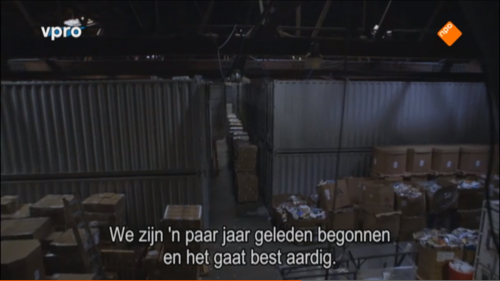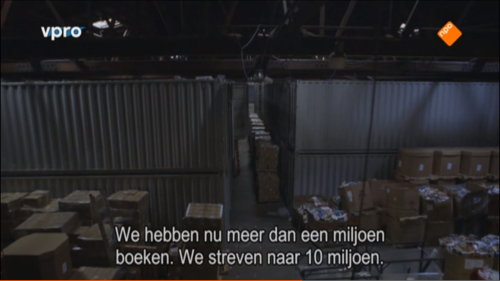User:Manetta/themediaarchive
The Media Archive - Adilkno (1988-1995), by Manetta
The element i selected from the book is pretty traditional problem that archives have to deal with: storage space. Before this was measured in m2, now we need a lot of servers to create digital archives. With the huge amount of data that every person produces, it might be good to ask ourselves which information we really want to be archived. What do we archive, and what not?
The media archives will prove to be modernity's Alexandria, and likewise go up in smoke. Once the bookshelf has fallen over, it may be a small disaster to the author, but a giant step for the readers. The greater the gibberish beheld by the writer, the more clarity is gained by the audience. The media archives are open to any unsuspected cross-connections, and generously invite misreadings. They do not strive for the ultimate aha-experience, but anticipate the metamorphosis of their own content. To read books = to destroy books. (Writing in the Media)
There is a great danger of the amount of data exceeding its critical limit and exploding.
Even the miniaturization of data storage cannot prevent the impending overload, but merely contributes to its amplification. (Topical Media)


Stills: the physical archive of Archive.org, full of physical books. This documentairy called 'Digitaal Geheugenverlies' (Digital Amnesia) deals with the problem of the problem of saving digital files. (As harddisks do not live much longer than five years, and there are many media which are not supported anymore, like the floppy.)
http://tegenlicht.vpro.nl/afleveringen/2014-2015/digitaal-geheugenverlies.html
It’s already almost impossible to only scan every book that is ever published, although Archive.org is one group of people trying very hard to do so. But storing all of the world’s books + all the information that the other media are producing everyday, will lead to the an huge storage problem.
Someone should create a selection. How do we make a this selection? And, who is in charge of making these descisions? Is that a company, or should we democratically vote for an archive-director? Or do we trust the professionalism and select by academic degree? How are we sure that the one who archives, hasn’t edited the file himself?
George Orwell once famously said: He who controls the past controls the future. He who controls the present controls the past.
Hasn’t setting up an archive a lot to do with trust?
This reminded me at another additional factor which comes across, concerning archives and the transparency of this medium. In an interview with Hans Ulrich Obrist, Julian Assange was asked for his dreams for the future. He describes a controversive act by the Soviet Union to the Great Soviet Encyclopedia in 1953:
The Great Soviet Encyclopedia had a page and a half on Beria from before he fell out of favor, and it was decided that the positive description of Beria had to go. So, an addendum page was made and sent to all registered holders of this encyclopedia with instructions specifying that the previous page should be pasted over with the new page, which was an expanded section on the Bering Straight. However, users of the encyclopedia would later see that the page had been pasted over or ripped out—everyone became aware of the replacement or omission, and so we know about it today. That’s what Orwell was getting at. (https://wikileaks.org/In-Conversation-with-Julian.html)
So, setting up an media archive is one challenge, another one is keeping an eye on the editing history of the files. Assange dream related to this example is a file-naming-system, in which a file will recieve a fixed file-name, related to its content. This will give the reader the insight if the document is still an unedited version, or not, as every change in the content will have an effect on the name of the file. It will give an transparent insight on the orginality of any text.
These are two different elements regarding to the medium 'archive' that i think are very urgent at the moment.
